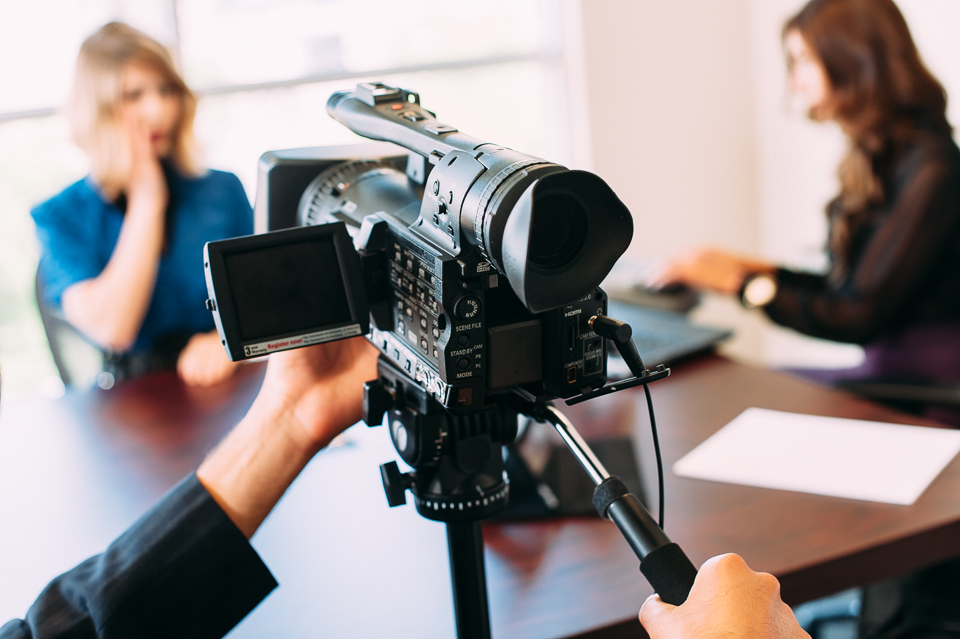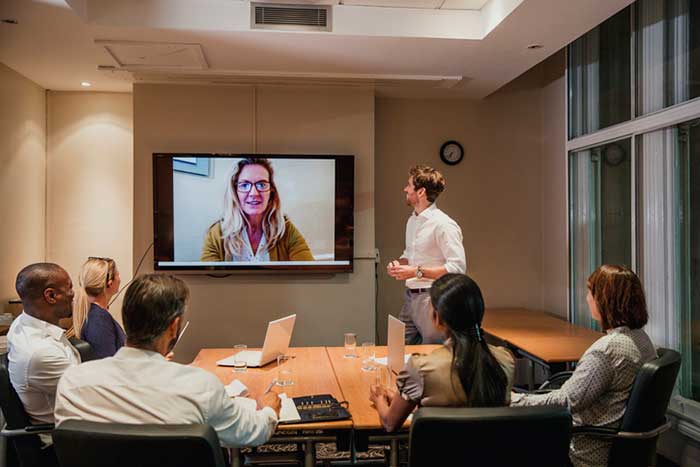The Value of Legal Video Clip Depositions in Modern Legal Solutions: What You Must Know
Lawful video clip depositions have actually become crucial in today's lawful landscape. They give a multidimensional sight of witness testaments that typical records just can not match. By capturing both spoken and non-verbal communication, these depositions boost the overall understanding of a witness's integrity. The effectiveness of video depositions hinges on various aspects, consisting of compliance with legal standards and finest techniques. Discovering these components discloses their real value in modern legal services
What Are Legal Video Clip Depositions?
Lawful video clip depositions offer as a vital tool in the litigation procedure. They involve tape-recording witness statements in a video style, catching both verbal and non-verbal communication. This method allows attorneys to record the temperament, expressions, and responses of witnesses, offering a richer context for the testament. Normally carried out in a regulated setting, these depositions are led by lawyers that ask concerns while a stenotype reporter documents the dialogue. The resulting video can be critical for trial preparation, as it enables legal representatives to examine the reliability of witnesses and refine their methods. In addition, lawful video depositions can be used in numerous legal contexts, ranging from civil disagreements to criminal situations. The acoustic and visual aspects of video clip depositions enhance the discussion of evidence, making it an essential element in the contemporary legal landscape. Overall, they contribute considerably to the efficiency and performance of lawful procedures.

Benefits of Video Clip Depositions Over Conventional Techniques
Video depositions offer various benefits contrasted to typical techniques of taking witness testimonies. One considerable benefit is the capability to capture both audio and visual components, supplying a much more comprehensive record of the witness's statements. This dual style enhances quality and enables lawyers to reference details subtleties during test prep work. Furthermore, video clip depositions promote remote participation, making it less complicated for witnesses who may be unavailable for in-person looks as a result of geographical restrictions or health issues.Moreover, video clip depositions can speed up the overall deposition process, reducing the moment and costs related to travel and logistics. They additionally boost access, as recorded depositions can be easily shared among lawful teams and referenced at any moment. This comfort adds to much better situation management and preparation. Overall, video depositions stand for a contemporary, efficient approach to gathering witness testimonies, straightening with the advancing needs of the legal occupation.
The Role of Body Language and Tone in Testimonies

In lawful video depositions, body language and tone play vital roles in sharing a witness's credibility and reliability. Nonverbal cues can supply insights into a witness's mood, influencing exactly how their testimony is regarded. Comprehending the impact of these components is crucial for jurors and attorneys alike when evaluating the integrity of a testament.
Nonverbal Communication Insights
While spoken interaction is typically emphasized in legal testimonies, nonverbal cues such as body movement and tone play a vital duty in communicating reputation and feeling. Observers of depositions might keep in mind that a witness's stance, gestures, and facial expressions can substantially influence perceptions of dependability. Consistent eye contact may indicate self-confidence, while staying clear of look can recommend dishonesty or discomfort. The tone of voice-- its pitch, quantity, and rate-- can pass on feelings of sincerity or unpredictability. Attorneys have to be attuned to these nonverbal signals, as they usually give crucial context that complements talked words. Understanding these subtleties can enhance the efficiency of depositions and affect the end result of legal proceedings.
Psychological Tone Influence
The psychological tone conveyed during legal statements substantially impacts just how a witness is perceived. Body language, vocal inflections, and faces play essential roles fit the narrative of a testament. A witness exhibiting self-confidence with consistent eye get in touch with and a calm tone can instill a feeling of reliability and involvement. On the other hand, indicators of anxiety, such as fidgeting or an unsteady voice, might bring about skepticism concerning their account. The nuances of psychological expression can influence the interpretation of facts, making it crucial for lawful professionals to acknowledge these hints. In video clip depositions, the auditory and visual parts integrate, emphasizing the significance of emotional tone in conveying genuineness and truthfulness within the legal process.
Integrity and Trustworthiness
An essential consider establishing credibility and credibility during testaments hinges on the witness's body movement and intonation. Viewers usually depend on non-verbal hints-- such as eye contact, posture, and motions-- to assess a witness's sincerity. A witness that preserves eye more info here call and displays open body language might be viewed as more straightforward and reliable than one who avoids eye get in touch with or appears closed off. Additionally, tone of voice plays an important duty; a stable, calm tone can reinforce the credibility of the testimony, while variations in pitch or quantity might raise doubts. Inevitably, the mix of body movement and vocal tone significantly affects just how a witness's statements are obtained and translated in a lawful context.
Best Practices for Carrying Out Video Depositions
Carrying out video clip depositions needs careful preparation and implementation to ensure a reliable and clear discussion of testimony. It is crucial to choose a peaceful, well-lit area to minimize interruptions and safe optimum video high quality. The equipment must be tested beforehand, consisting of electronic cameras, microphones, and lighting, to prevent technological issues during the deposition.Next, parties involved should review the style and treatments beforehand, making certain that every person recognizes their roles. The deponent ought to be oriented on the procedure, including exactly how to react clearly and concisely.Additionally, maintaining a specialist attitude throughout the session is vital. This consists of avoiding talking over one another and verifying that all concerns are routed properly. Finally, it is vital to record the deposition in a style that enables for easy playback and review, preserving the honesty of the testimony for future usage.
Legal Factors To Consider and Conformity Issues
Exactly how do legal factors to consider and compliance issues impact the performance of video clip depositions? Legal specialists need to browse an intricate landscape of policies, making sure that video clip depositions abide by administrative rules and standards. Conformity with legislations worrying privacy, approval, and videotaping methods is vital. For example, getting explicit approval from all events involved is necessary to prevent legal repercussions.Additionally, the admissibility of video clip evidence in court can hinge on conformity with step-by-step requirements. Ensuring that the equipment made use of meets technical requirements is additionally vital, as inadequate top quality can threaten the deposition's reliability.Moreover, lawyers have to know any type of details state laws that govern video clip depositions, as these can differ considerably. Failing to deal with these considerations can not just endanger the honesty of the deposition but likewise impact the general case technique, inevitably affecting the client's lawful results.
Exactly How Video Depositions Effect Jury Understanding
While video clip depositions can function as powerful tools in legal proceedings, their influence on court informative post perception is considerable. The visual and acoustic components of video clip recordings supply jurors with a much more thorough understanding of witness behavior, reliability, and psychological feedbacks. This multimedia technique can improve the jurors' ability to examine the dependability of testimony compared to conventional text-based transcripts.Moreover, video depositions permit jurors to observe body language, tone of voice, and face expressions, all of which can impact their interpretation of the witness's statements. The visibility of a witness on screen can humanize them, promoting empathy and connection, which may sway jurors' opinions. On the other hand, a witness who shows up unreliable or evasive on video may lead to negative perceptions that influence a court's choice. Eventually, the vibrant nature of video depositions plays a crucial duty fit just how jurors analyze evidence and reach their decisions.
The Future of Video Clip Depositions in Legal Technique
As innovations in modern technology continue to reshape the lawful landscape, the future of video depositions is positioned for substantial advancement. Innovations such as expert system, online reality, and boosted video clip conferencing devices are expected to simplify the deposition process and improve ease of access. Lawful specialists may make use of AI-driven analytics to analyze witness integrity and situation strength extra effectively.Moreover, the assimilation of virtual truth might permit courts to experience immersive simulations of depositions, providing much deeper context and understanding. Furthermore, the trend toward remote depositions is most likely to persist, offering higher adaptability for attorneys and clients alike.As remote work comes to be significantly normalized, video depositions will likely come to be standard practice, decreasing expenses and time restrictions connected with standard techniques. Generally, these technical innovations promise to enhance the efficiency, effectiveness, and accessibility of video depositions in lawful practice, read review inevitably transforming just how attorneys get ready for test.
Regularly Asked Concerns
Just How Much Do Lawful Video Clip Depositions Commonly Cost?

Can Video Clip Depositions Be Utilized in Any Kind Of Type of Case?
Video depositions can be utilized in numerous sorts of cases, including civil, criminal, and family members legislation. Their flexibility enables lawyers to existing witness statements properly, adjusting to the specific requirements of different lawful scenarios.
What Equipment Is Required for a Video Clip Deposition?
To conduct a video deposition, crucial tools includes a high-quality cam, microphone, illumination, and a dependable recording tool. Additionally, a computer system with modifying software might be required for post-production and formatting the final video clip.
How much time Does a Typical Video Deposition Last?
A regular video deposition lasts between two to four hours, relying on the intricacy of the case and the variety of questions postured. Extended sessions might happen, yet breaks are generally included for individual comfort.

Are Video Depositions Admissible in Court?
Video clip depositions are generally acceptable in court, supplied they follow lawful standards and policies of proof. Their usage boosts quality and protects witness testimony, helping in the judicial procedure throughout hearings and tests. Legal video clip depositions have actually become vital in today's lawful landscape. In addition, lawful video depositions can be used in different legal contexts, ranging from civil conflicts to criminal situations. In addition, video depositions facilitate remote participation, making it easier for witnesses who might be inaccessible for in-person looks due to geographical restrictions or health issues.Moreover, video depositions can speed up the general deposition procedure, minimizing the time and prices connected with traveling and logistics. Guaranteeing that the tools used satisfies technical criteria is additionally vital, as poor high quality can threaten the deposition's reliability.Moreover, attorneys should be conscious of any kind of specific state legislations that govern video clip depositions, as these can vary significantly. Additionally, the trend toward remote depositions is likely to continue, providing better adaptability for lawyers and clients alike.As remote work becomes significantly normalized, video clip depositions will likely become basic practice, reducing costs and time restrictions associated with conventional methods.